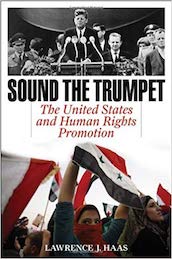Peace Through Tennis: An Alluring Idea
Across the Middle East, hopes for Arab-Israeli peace face obstacles that, of late, are rising on multiple fronts.
Fatah and Hamas are working toward a coalition government, which will further empower a terrorist group that's sworn to Israel's destruction and isolate Palestinian moderates; a candidate of the Muslim Brotherhood is assuming the presidency in Egypt while the emerging government is threatening to upend the longstanding Israeli-Egyptian peace treaty; and an Iranian regime that increasingly threatens Israel's destruction continues to make progress toward nuclear weaponry.
